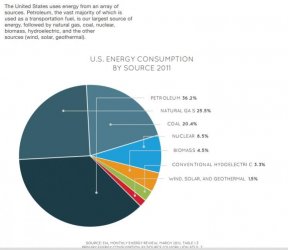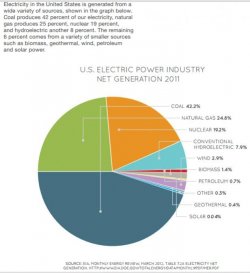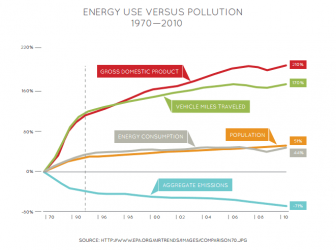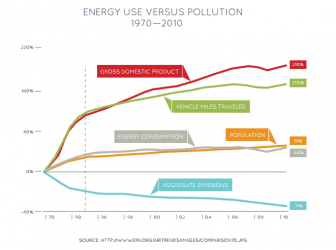Mr. H.
Diamond Member
By how much, and at what cost? More importantly, at WHO'S cost?
It's obvious that the hydrocarbon industries have been doing something right over the decades.
Since 1970, population up 51%... energy consumption up 44%... vehicle miles traveled up 170%... GDP (closely correlated with energy consumption) up 210%.
Aggregate emissions... down 71%.
Obama said it himself... he wants to tax billions from the hydrocarbon industries and invest it- through the government poop chute - into alternatives and renewables.
If accomplished, how might these illustrations change over the succeeding years?
http://alfin2300.blogspot.com/2012/05/peak-oil-meet-hard-facts-energy-primer.html
It's obvious that the hydrocarbon industries have been doing something right over the decades.
Since 1970, population up 51%... energy consumption up 44%... vehicle miles traveled up 170%... GDP (closely correlated with energy consumption) up 210%.
Aggregate emissions... down 71%.
Obama said it himself... he wants to tax billions from the hydrocarbon industries and invest it- through the government poop chute - into alternatives and renewables.
If accomplished, how might these illustrations change over the succeeding years?
http://alfin2300.blogspot.com/2012/05/peak-oil-meet-hard-facts-energy-primer.html







